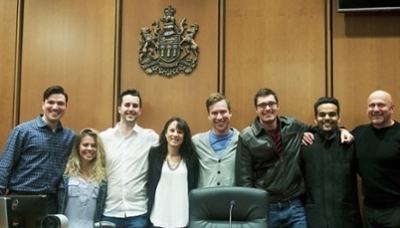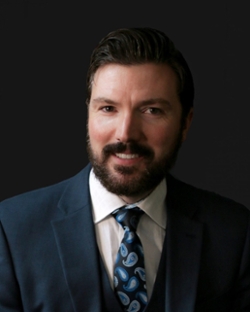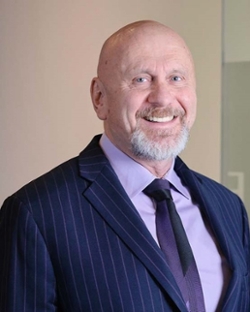The Criminal Law Intensive Practicum and Seminar provides USask Law students with real-world practical exposure to the practice of criminal law.
Overview

Students will be placed in the office of a criminal lawyer for nine weeks where they will become intimately involved in the practice of criminal law. They will be exposed to a wide variety of criminal practice issues from the defence of criminal accused to the running of a criminal law practice.
Students will be encouraged to reflect upon what they observe and will also learn about several advanced criminal law, ethical, evidence, trial advocacy and criminal procedure issues. The Charter of Rights and Freedoms legal rights and procedural issues will also be discussed in depth.
The course will be designed to represent a culmination of all that a criminal lawyer needs to know and will build on the student’s substantive knowledge in the discipline.
Though entitled the “intensive criminal practicum,” the courses will see students exposed to many areas of the law that in practice will tend to blur together. This will involve the subjects listed above and a myriad of other issues including insurance law, property law and other areas that will arise from the various criminal matters the student will be exposed to during their placements with the supervising lawyers and Judges.
That said, the placements will be with criminal lawyers and students will be continually involved in that area of the law rather than all areas of the law, as seen in a standard articling position.
Placements
Placements will begin in January and end in March, with students attending 32 hours per week (Monday to Thursday). Instructors will select the supervising lawyers and law firms and continue regular contact with them.
From Monday to Thursday, students are expected to be in the office during work hours, usually starting the day at 8:00 or 9:00 am and working until to 4:00 or 5:00 pm. They are required to be professionally dressed and to understand their work environment and act professionally within that environment.
On Fridays, students will attend the weekly seminar, led by course instructors.
In the placemements, lawyers will engage with the students on several fronts. This is not an early articles process but rather is intended to encourage reflection on what criminal practice involves and how it is best done. There are almost no “criminal articles” in the private criminal bar in Saskatoon and these placements are not intended to compete with the articling process. Students will have an assigned supervisor in their placement who can look after work-related questions and concerns.
Supervising lawyers and students will complete feedback forms at various stages in the placement and once it's completed, to monitor the value and success of the experiential learning opportunities students were exposed to.
Instructors will have regular contact with both the supervisor and the student. Students will not be considered lawyers or junior counsel and will not be expected to provide legal advice to their supervisor or to clients.
Seminar
- Guest speakers
- Meditation
- Exercise
How to apply
Paraticipants are selected by the course instructors.
Students who wish to be considered must email instructor Brian Pfefferle to outline why they are interested in the course and describe any relevant experience. They should also attach their cv or resume.
Emails must be sent by September 1. Applicants will be informed within two weeks whether they are accepted.
Prerequisites/Co-requisites:
- Criminal Procedure
- Evidence I
Instructors

Brian Pfefferle, KC
Brian Pfefferle is a USask Law alumnus who has dedicated his career to criminal law. He is currently president of the Saskatoon Defence Lawyers Association and has been inducted as a Fellow in the American College of Trial Lawyers (2024).

Jay Watson, KC
Jay Watson, a USask Law graduate, is a partner at Cuelenaere LLP in Saskatoon. He has a diverse litigation practice, but focuses primarily on criminal defence, civil litigation, and administrative law. He is a former Bencher of the Law Society of Saskatchewan. He has been rated by his peers as having a very high legal ability and high ethical standards, receiving a “BV Peer Review” Rating by Martindale-Hubbell.
